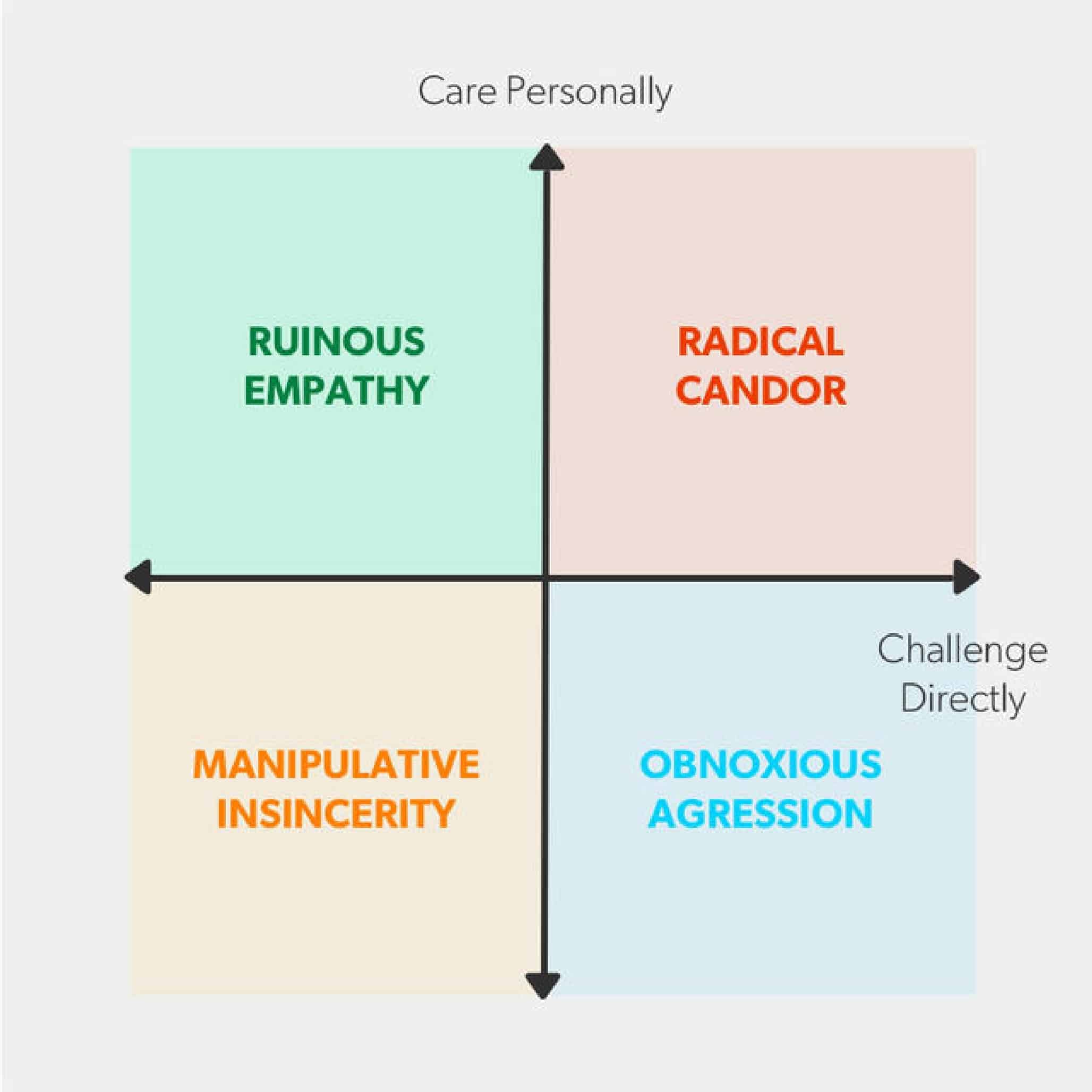If you are flummoxed by the word ‘front stabbing’, let me tell you, so was I. I had never heard of it until I read an article by SHRM. Intrigued by the term, I further read about it.
And if you are wondering, front stabbing is not like backstabbing, in the sense that it does not involve any betrayal of sorts. Instead, it is a type of feedback, brutally honest, make-no-bones about it feedback. It is also known as radical candor. If your employee’s work sucks, radical candor is telling them that their work sucks, with no softening of phrases to cushion the blow.
I’m going to stick to the term radical candor throughout the article because, to be honest, I feel awkward using the word front-stabbing.
Also Read: How To Accept Positive Feedback In The Workplace
Radical Candor in The Workplace
The philosophy behind the concept is this – being nice does not always work. To drive a point home, feedback needs to be blunt. It’s impossible to ignore being hit by a hammer right?
Radical candor has two notable proponents, namely Kim Scott (Co-founder and CEO of Radical Candor) and Susan Scott (author of widely acclaimed self-help book Fierce Conversations).
According to Scott, radical candor isn’t:
- Obnoxious aggression – This is also known as brutal honesty.
- Ruinous empathy – This means that you care personally but do not share the necessary feedback to avoid hurting their feelings.
- Manipulative insincerity – This is the exact opposite of radical candor, where you don’t care personally nor do you give any feedback.
I get the idea behind the concept and think it is a good one. People always appreciate the honest feedback. I would rather let somebody tell me the truth about my work as opposed to sugarcoating it because they are afraid that my feelings might be hurt.
Of course, at the moment, my feelings might be hurt, because it is not easy to listen to honest criticism and know that it is not an attack on you as a person. But in the long run, I’m going to appreciate it because that honest feedback is motivating. Moreover, the next time I’m going to work on a project, I’ll put in the extra effort to do better to show my boss/manager that I can.
Also Read: Giving Constructive Feedback To Your Peers
So yes, I do think radical candor is a good approach to feedback. By using this approach, people will no longer live in a false bubble and become devastated when that bubble bursts. It seems deceptive to tell someone that their work is ‘alright’ or ‘good’ and then privately fix that work yourself or tell another peer that the employee in question turned in some bad work.
All the same, I feel like there are a few things proponents of honest speaking should keep in mind.
- Being honest is not the same as being a jerk – When people behave like jerks and pass it as honest feedback, soon enough others are going to ignore them.
- Honest feedback is better when it comes from someone you trust – Such as your boss, your manager, a peer, etc. When a completely random stranger gives brutally honest feedback, employees are less inclined to trust them or will ignore that feedback.
- Radical candor goes two ways and not just top to down – Usually, a manager is the one to tell an employee, ‘You need to look more presentable when you represent the organization at conferences.’ Likewise, an employee should also be able to say, ‘I think you place way too much emphasis on dress codes and it is stressful because instead of focusing on my presentation, I am worried about how I look.’
- And always remember the golden rules about giving feedback in the workplace.
Key Takeaways
If you finished reading this article and thought, ‘This is nothing new, this is how I usually give feedback’, then keep doing what you are doing. You’re on the right track!
And if you finished this article and thought about the last time you wanted to say something honest about a project/presentation but held your tongue instead, afraid of hurting the person’s feelings, you should know that you can give, honest, critical feedback and still be a good person.
And of course, you can always call radical candor or front-stabbing by its proper name, feedback.



